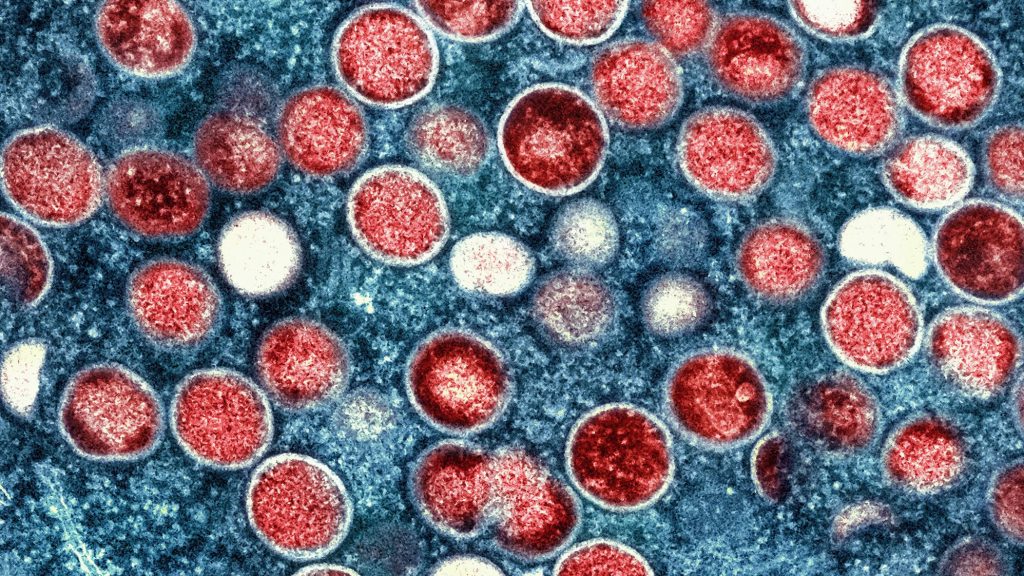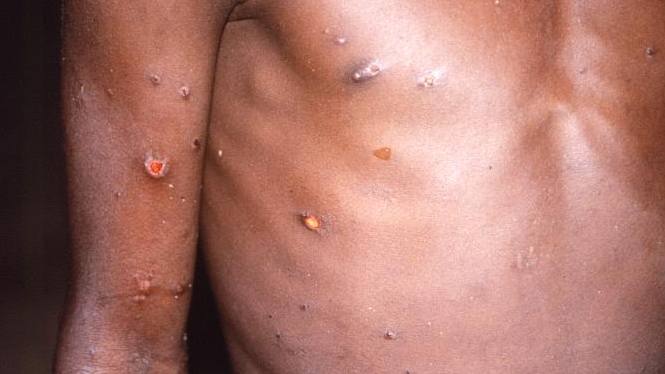-
Health & Wellness
(VIDEO) Mpox strain detected in new regions: A Mayo Clinic expert explains

Mpox, a disease caused by the monkeypox virus, is a global health concern, with outbreaks in Western and Central African countries spreading into other regions. Recently, health officials in the United Kingdom reported new cases of a mpox strain called clade Ib. The World Health Organization declared mpox a public health emergency of international concern in August.
Dr. Matthew Binnicker, director of the Clinical Virology Laboratory at Mayo Clinic, says there are two strains of the virus that cause mpox, clade I and clade II. Each has different subclades that can cause varying degrees of severity. Clade I generally causes more severe illness than clade II.
"We've known about mpox, but up until recently, the outbreaks have mainly been geographically isolated within the continent of Africa," says Dr. Binnicker. "In 2022, we saw a large worldwide outbreak of clade II monkeypox virus that was associated with a less severe form of mpox disease. But we still saw cases worldwide, including here in the U.S."
Watch: Dr. Matthew Binnicker discusses mpox
Journalists: Broadcast-quality sound bites are available in the downloads at the bottom of the posts. Name super/CG: Matthew Binnicker, Ph.D./Laboratory Medicine and Pathology/Mayo Clinic
Concern about clade I
It is clade I and its subclades that cause more concern for the global health community.
"The other clade of monkeypox virus (i.e., clade I) is more associated with severe disease and is causing a very large outbreak in the continent of Africa, and we've seen some sporadic cases of that more severe strain outside of Africa," Dr. Binnicker explains.
He says this is a much more severe form of infection compared to the 2022 outbreak.
"Clade Ib is causing this more recent outbreak in Africa and sporadically through other countries. The mortality rate of clade I infection can range between 3% and 10% of those who come down with the disease. It is a much more severe form of the infection than clade II infection, which caused the worldwide outbreak of 2022," says Dr. Binnicker.
Transmission
"There is some evidence that monkeypox clade Ib virus might be spreading more easily in younger populations, and health officials are closely monitoring," he says.
"In Africa, they're seeing more cases in young children, which implies that more routine contact may allow for spread of the virus. Whereas in the 2022 outbreak, it seemed like more intimate, close contact was required for the virus to spread."
Both clades of the virus can transmit or spread from direct contact with an infected animal, close or intimate contact with an infected person, or contact with contaminated objects like clothing, towels or bedding.
Symptoms of mpox
Monkeypox virus is in the same family as the virus that causes smallpox. It can cause flu-like symptoms such as fever, chills and swollen lymph nodes. It's most noted for its itchy, painful rash. Symptoms tend to start within three weeks after exposure to the virus.

"In most cases of mpox, people will develop lesions, a blister-like rash, near the site of infection. In certain patients, especially those with a compromised immune system, the presentation of their lesions can be throughout the body. In some cases, people can have what we call a disseminated disease, where the virus can infect a number of different organ systems, leading to hospitalization and, in some cases, death," says Dr. Binnicker.
Vaccination, prevention
Nearly 900,000 doses of the mpox vaccine have been allocated for the region in Africa hit hardest by the mpox outbreak.
"They're really trying to get the mpox vaccine into Africa to increase the number of those vaccinated against it, to help drive down the number of infections there," he says. "There are also tests available for mpox, so we do have, to a limited degree, some tests within the U.S. and in other countries to diagnose cases."
Tips to protect yourself from mpox infection:
- Avoid close contact with people who have a rash that looks like mpox.
- Avoid handling clothes, sheets, blankets, or other materials that have been in contact with an animal or person with mpox.
- Talk to your healthcare team about whether mpox vaccination would be recommended for you.
- Isolate people who have mpox from healthy individuals.
- Wash your hands well with soap and water after any contact with an infected person or animal.
- Seek medical attention if you develop a flu-like illness and rash, especially after traveling to Africa or meeting a person who has been diagnosed with mpox.
Related Articles







